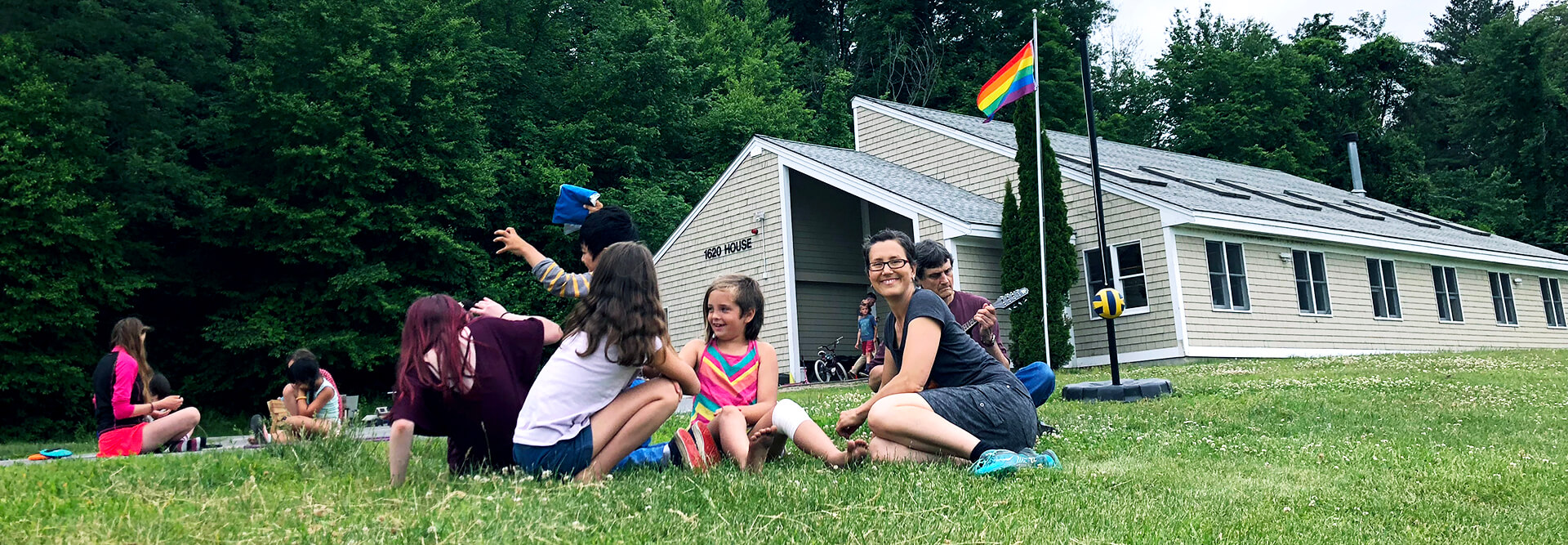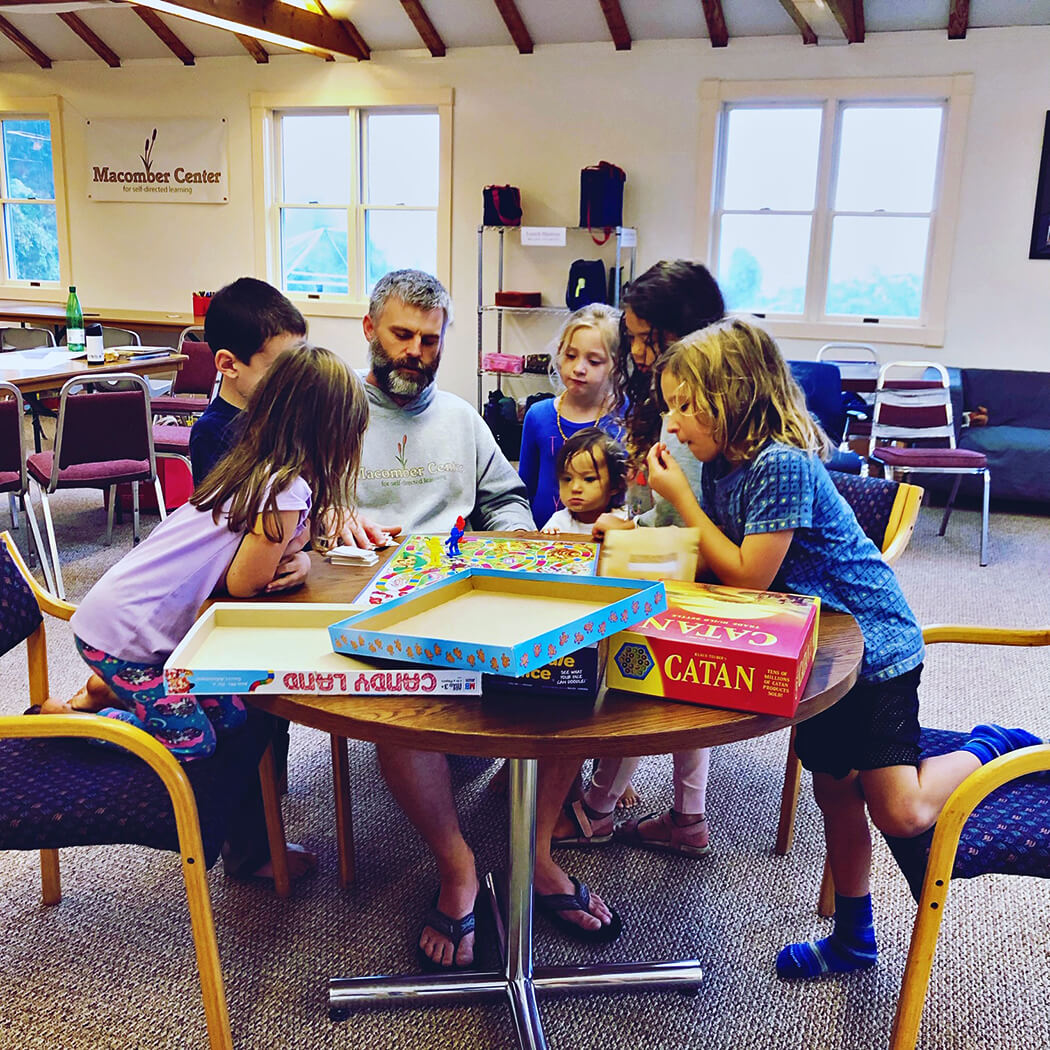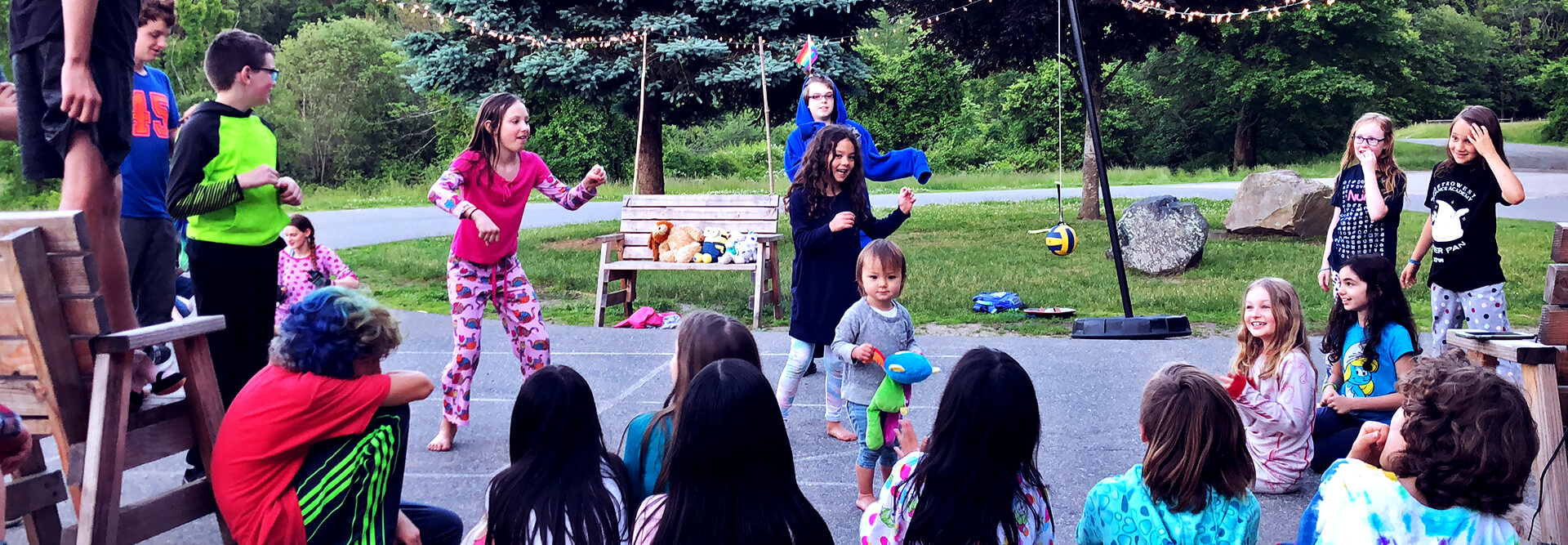In his foreword to A. S. Neill’s Summerhill; A Radical Approach To Child Rearing Erich Fromm writes that such an experiment in education as Summerhill could not be repeated often in our society since “Few parents have the courage and independence to care more for their children’s happiness than for their ‘success’.”
This is an unusually clear and direct statement of the real obstacle to the Self-Directed Education movement. Though it was written almost 60 years ago, it still holds true today, and I believe it provides a key to where we, as advocates for Self-Directed Education, need to focus our efforts. Until parents recognize the importance and value of children’s happiness there is no reason to expect this movement to grow significantly.
Some may find Fromm’s statement harsh and condemning of parents. But I don’t find it to be that at all. I don’t think he is saying that parents do not care about their children’s happiness, but that they are single-mindedly focused on success as a means to happiness. Of course parents want their children to be happy. But the ways in which we imagine happiness for our children are conditioned by our society, and our society has trained us to measure happiness by how successful we are, instead of measuring success by how happy we are.

I met a woman at a party one evening who told me that her daughter had become extremely anxious and depressed due to academic pressure and bullying from other kids. She worried that it was only a matter of time until her daughter would try to hurt herself. She went on to tell me that her daughter loved dance and gymnastics but that her talents in those areas were not valued by her teachers because her focus on these pursuits was getting in the way of her school work. I told her about some alternatives and encouraged her to get her daughter out of that environment so that she could focus on the things which bring her joy, satisfaction and self-esteem. I will never forget her response; “But how will she ever get into college?”
This was such a clear example for me of how hard it is for many parents to imagine their children’s happiness resulting from anything other than “success” in the narrowest sense of the word.

What would it look like to prioritize our children’s happiness over their success? Some might reject this distinction between happiness and success as a false dichotomy. After all, we can all think of examples of people, maybe even ourselves, who are both happy and successful, whose happiness and success stem from the very same place. My point is not that success precludes happiness, but simply that it is not the cause of happiness. What I mean by happiness is the experience of fulfillment that results from the satisfaction of our genuine psychological needs. We all share the same basic human needs for belonging, meaning, autonomy and competence among other things. When these needs are met we feel happy. When they are thwarted we can easily end up feeling anxious, frustrated and depressed.
Many people these days find themselves in careers which earn a good salary and high social status but which do not afford them much freedom or creativity and do not meet their needs for meaningful work. But people also seem to be more willing these days to leave careers which they find tedious, boring and demoralizing, and to make dramatic life changes even at the risk of financial loss to themselves and their families. I find this encouraging. It is a sign that people are conscious of their true needs as distinct from the false needs that our society imposes on us for wealth, social and professional distinction and endless consumption. It is also a sign that people may be more conscious of the values and priorities they bring to raising their children.
When we first started the Macomber Center, I assumed that the parents most likely to be open-minded to such a radical educational alternative would be those who struggled and did badly in school and then went on to be successful in spite of it. Those parents, I thought, would understand that children do not need school in order to figure out what they want to do with their lives and then go on to do it well. What I discovered, though, was that the parents who were interested in finding a genuine alternative for their kids were just as likely to be those parents who had done very well in school and even thrived in competitive academic settings but who found that success in school and success in their careers had not lead to the kind of satisfaction in life that they had assumed it would.

We all want our children to be happy and free from unnecessary suffering but it is not always easy to figure out how to best support this intention because we do not always know what is best for them. We may worry, for example, that many of the things which bring them happiness now, if they are permitted to continue, are not in their overall best interest in the long term. On the other hand, we may feel that there are certain things which, while they do not bring our children much joy right now, are nonetheless necessary to ensure their long term happiness. This can cause a lot of painful struggle between us and our children because we believe we are acting in their best interest and they believe they are acting in their own best interest. I believe that it is almost always in children’s best interest to be given the freedom to choose how they spend their time even when that freedom results in our children doing things that we believe are not in their own best interest. Children, like all human beings, have the need for equality, respect and autonomy. I believe that the satisfaction of these basic human needs is far more important to their overall well-being and development than any good that might be gained by restricting their freedom to choose activities that we think will not be good for them or by pressuring them to engage in activities that we think will be good for them.
Even when parents opt out of the education system it can be very hard to shake the ideas of conventional education altogether. It can be hard for children too. We have all been so deeply conditioned to think of education as a basic human need that opting out of institutionalized education can often leave parents and even children with a sense of guilt and anxiety. In trying to sort through all of this in my own mind, I have found it useful to think along the lines of a distinction that is sometimes made, following the German-American philosopher Herbert Marcuse, between true needs, the satisfaction of which contribute to the well-being of individuals, and false needs, those needs imposed upon us by society which serve to maintain the existing social structure. Education, one could argue, is a false need which we have learned to confuse for a true need. The true need is need for learning, a need shared by people of all ages, not just children. By “learning” I mean following our curiosity, engaging our interests and acquiring the knowledge and skills which contribute to our growth and development and help us thrive as unique individuals.

I would never claim that this kind of genuine learning does not take place in conventional schools. I have not spent enough time in conventional schools to be able to say much about this one way or the other. But by “education” I mean something different. Education is an institutional practice carried out in all conventional schools both public and private which requires all children to learn the same subjects, from the same material, by the same teaching methods, at the same age. Not only does this kind of education not guarantee genuine learning, it can in some cases frustrate children’s needs for such learning. And for children who do not go to school willingly, education as I have defined it, undermines the genuine needs for equality, respect, independent thought and self-direction.
This kind of talk of education as a potentially harmful influence on children can elicit very strong negative reactions from parents and teachers as well as other people who work hard to help children succeed in school. It is not my intention to undervalue the effort of such people or the good that they do. The criticism of education as a false need is not meant as a criticism of people – teachers, parents, counselors, administrators. It is a criticism of a system which frustrates the needs of those adults working within it just as consistently and reliably as it does those of the children it is set up to serve. I believe that the people who go into careers in education do so out of a desire to contribute meaningfully to the well-being of children. Many teachers, however, just like many people who go into careers in medicine and social work and so on, end up physically, mentally and emotionally exhausted, a condition commonly referred to now as “burnout,” not because putting so much time and energy into caring for others is inherently stressful and draining – it can be an endless source of energy and inspiration – but because of the constant demands to serve the interests of the institution over the people those institutions are supposed be serving.

I have come to believe that one of the most important needs we all share as human beings is the need to express our love and compassion through care and concern for others. I think that much of our discontentment comes from our inability to meet this need. Our whole way of life, tragically, seems to be almost set up to frustrate the satisfaction of this need that we all have to benefit others. It is all the more tragic, therefore, when people go into teaching, for example, because they love working with children, and they want to help children learn, grow and thrive, and those efforts are thwarted because of the pressure they are under to get kids to meet arbitrary benchmarks.

Schools can be wonderful places when they are designed to meet the needs of children for freedom, creativity and happiness while also meeting the needs of the adults to contribute meaningfully and positively to children’s lives. But this requires a deep and honest examination of our values and beliefs about what children really need. Fromm concludes his forward to Neill’s book by writing, “If it can happen once in Summerhill, it can happen everywhere – once the people are ready for it....I believe Neill’s work is a seed which will germinate. In time, his ideas will become generally recognized in a society in which man himself and his unfolding are the supreme aim of all social effort.”
Fromm recognized that transforming education would require much more than creating a new type of school, it would require creating a new type of society with a new set of values. For it would require parents to prioritize human flourishing over personal success and economic growth. So, are we ready for it? I’m not so sure. Little has changed since these words were written. Self-Directed Education continues to appeal only to a very small number of people. And of those, an even smaller subset seem to be interested in questioning the underlying values of conventional education. Instead, they embrace Self-Directed Education because they believe it will offer their children a better shot at success. There is a lot of hype these days about Self-Directed Education being the best way to train children for the “innovation era.” Again, I have nothing against entrepreneurs and innovators. But when this is the goal, the promise being sold to parents, it does little to liberate parents and their children from the expectations, pressures and anxieties of goal-oriented education. That we seem to be no closer today to Fromm’s “new society” should not cause us to become discouraged. It can serve as a helpful indication of where our energy will be best spent. I think we need to work hard to help people critically question the underlying values of conventional education not because it will lead to a revolution in education but because it can improve the lives of children and parents who are struggling under the dominant paradigm of success oriented education and parenting.
If you enjoyed this article and feel called to give back to ASDE, here are ways you can support our work:
- Donate money
- Share our content with others! Click one of the buttons above to easily share on Twitter, Facebook, or email.
- Consider becoming a Contributor for Tipping Points
Tipping Points Magazine amplifies the diverse voices within the Self-Directed Education movement. The views expressed in our content belong solely to the author(s). The Alliance for Self-Directed Education disclaims responsibility for any interpretation or application of the information provided. Engage in dialogue by reaching out to the author(s) directly.






